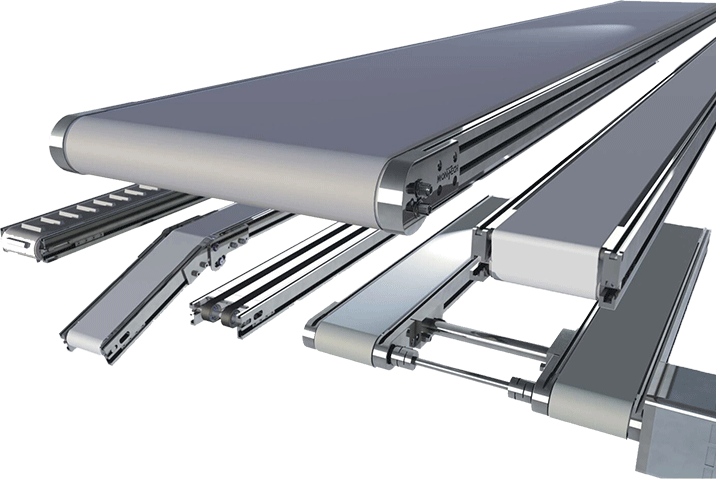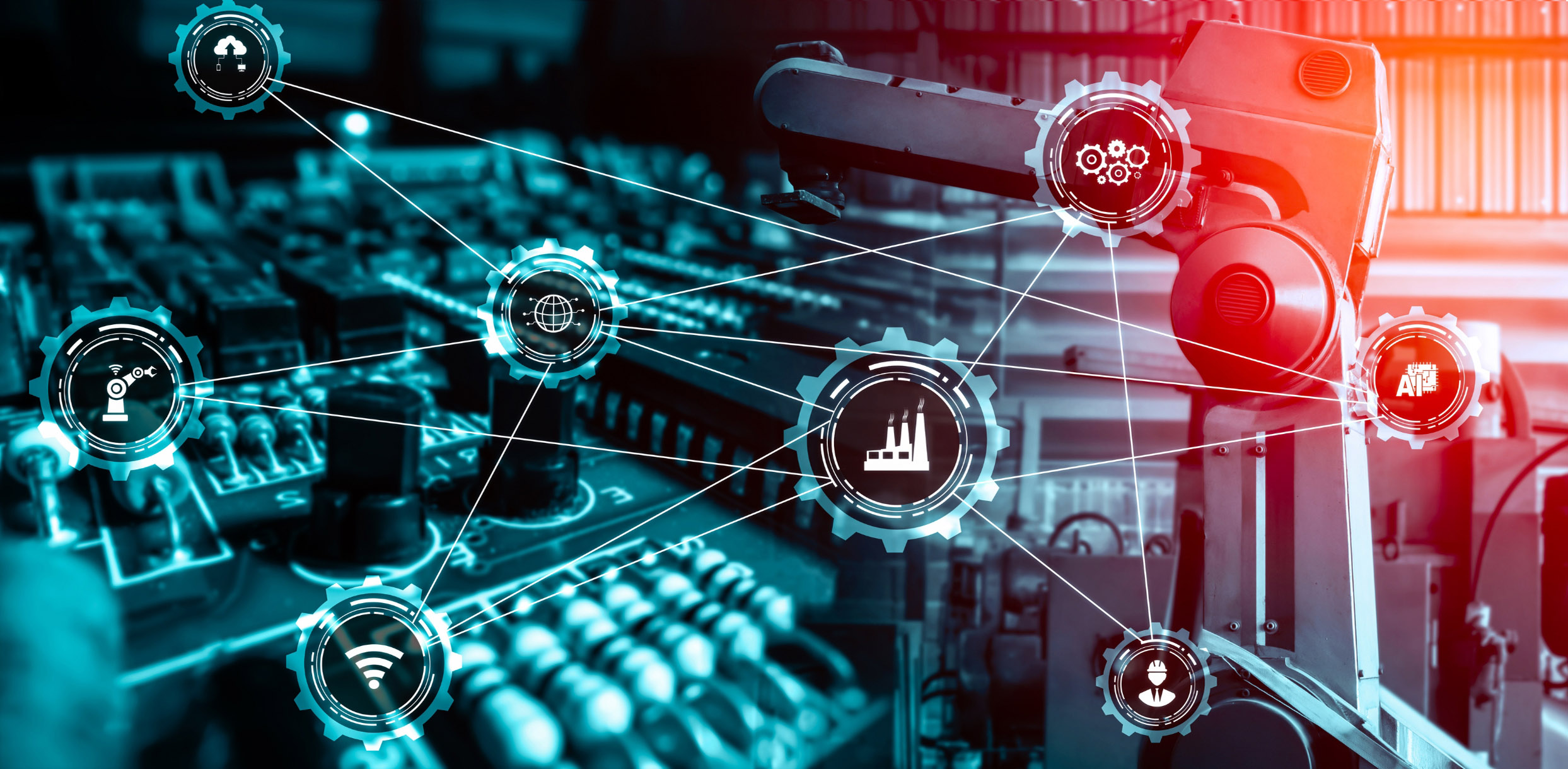Automation, digitalization, and the networking of processes and systems have revolutionized production under the term Industry 4.0. The goal of the fourth industrial revolution is to make production processes even more efficient. Industry 5.0 builds on this by focusing on the cooperation between people and machines. When used correctly, companies can increase productivity, produce better quality, and enjoy greater flexibility.
Industry 4.0 is the real-time networking of production, products, people, and machines through digital technologies such as Big Data, artificial intelligence, cloud computing, and the Internet of Things. Automation of industrial processes and access to real-time production data enable optimal use of existing resources. The focus is on the organization, control, connection, and accessibility of production processes in all industrial sectors. By using sensors, analysis tools, and measuring instruments, changes in production can be detected.
Many benefits for companies
The ability to share information is central to Industry 4.0. Here, all systems are networked with one another and automated. They can also exchange data in real time. Industry 4.0 offers many advantages for production flows and processes:
- Increased efficiency: By automating processes and using intelligent machines and systems, companies can make their production more efficient. This results in higher productivity and lower operating costs.
- Better quality control: Industry 4.0 enables companies to collect and analyze data in real time. Parameters such as temperature, packaging, balance, and movement can be adjusted perfectly. This allows companies to detect and correct defects more quickly, resulting in higher product quality and lower scrap rates.
- Flexibility: By connecting machines and systems, companies can make their production more flexible and react quickly to changes. This allows them to adapt quickly to market needs and gain competitive advantages.
- Personnel reductions: By automating processes, companies can reduce their reliance on manual labor. This allows them to reduce personnel while increasing productivity.
- Improved occupational safety: Intelligent machines and systems can perform dangerous tasks that would be too risky for people, which improves occupational safety and prevents accidents.
- Increased customer loyalty: By connecting machines and systems, companies can better tailor their production to their customers’ needs. This results in greater customer satisfaction and better customer relationships.
- Optimized stock levels: By networking systems, it is possible to monitor the status of an order in real time and to satisfy customer requests more quickly. Automated production also allows companies to optimize their inventory and deliver their goods faster.
Human + Machine = Industry 5.0
Industry 4.0 started in 2010 and is still in progress. Many companies have not yet completed the transformation. At the same time, Industry 5.0 has been around since 2020. The fifth industrial revolution begins with Industry 4.0. Its focus is on collaboration between people and robots, and how companies benefit from new production efficiency. Cooperation between people and machines in industrial processes will result in the optimization and automation of many companies. This cooperation will generate new techniques and ideas for managing workers, including both people and software-driven robots. The interaction between people and machines improves production processes, reduces costs, and ensures an optimal use of resources. Industry 5.0 strives for so-called collaborative robots to be able to successfully act as human companions in production in order to enable more efficient overall production.
Keeping up with the times is worthwhile
Intelligent production is becoming increasingly important. The future belongs to intelligent production – and to those companies that adopt Industry 4.0 and Industry 5.0 and invest in intelligent machines and systems. This will enable them to confront the challenges of the future, remain competitive, and differentiate themselves on the market. Montech can be a reliable partner in this process. Our components are designed for dynamic customers and demanding industrial processes, and our belt conveyors, conveyor systems and framing systems are tailored to meet our customers’ requirements.



